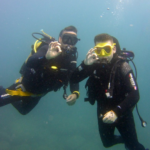Safe Zone from Anfi Beach
New safe zone between Anfi Beach and Patalavaca Recently the government, in collaboration with Anfi Del Mar, has created a new safe zone stretching from Anfi beach to Patalavaca. In the area only swimmers are allowed, no propulsion based boats can enter this zone. The protected area stretches for little over 2000 meters. The Safe […]



